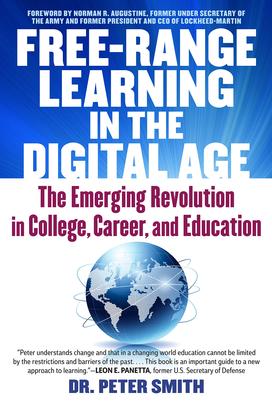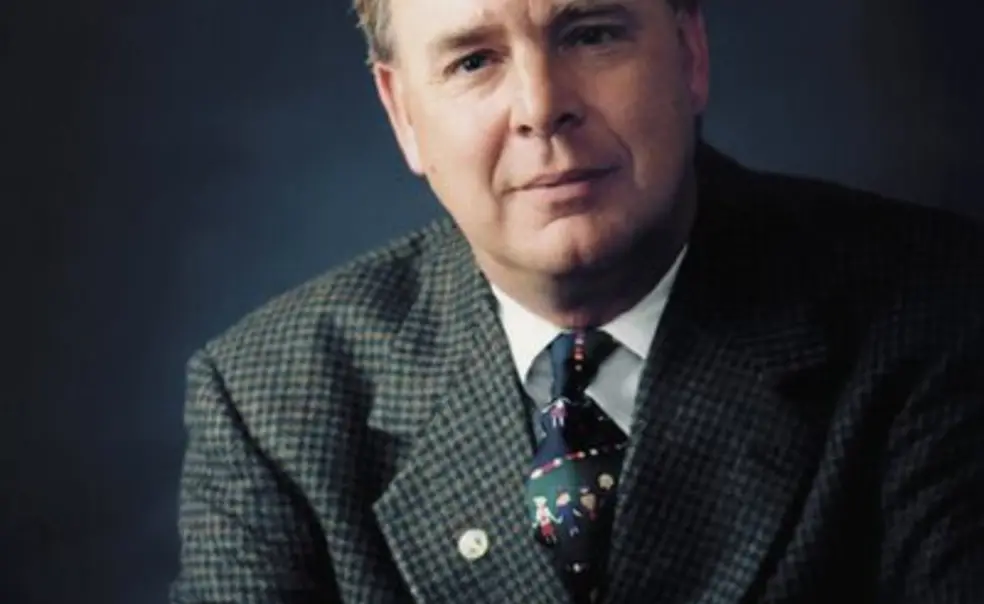Peter Smith ’68 on the ‘Digital Learning Revolution’
The book: Peter Smith ’68 has been a strong proponent of educational opportunities for adults since the 1970s, when he spearheaded the launch of the Community College of Vermont. Since that time, he has seen opportunities for non-traditional students grow dramatically, especially through the growth of the internet and online-learning programs. Free Range Learning in the Digital Age: The Emerging Revolution in College, Career, and Education (SelectBooks) is a response to these new opportunities and is intended primarily for workers with valuable experience but no “credentials” to show for it. Smith encourages those individuals to recognize what they have learned through work and life and to capitalize upon that knowledge to attain their educational and career goals. He details many of the colleges and programs oriented towards adult students, many of which also give credit for “real-world” knowledge gained over the course of regular work. Testimonials from adults who have used modern learning opportunities to enrich their lives are featured throughout the book, as demonstrations of how the “digital learning revolution” is having measurably positive results.
The author: Peter Smith ’68 is a former congressman and college administrator who is currently Professor of Innovative Practices in Higher Education at the University of Maryland University College.
Opening lines: “Free-range learning in the digital age” describes the silent learning revolution occurring in America. Many are not aware of this explosion of a vast scope and range of education resources now available to adult learners.

One of the main elements of these barriers has been the refusal of most colleges and employers to value the actual knowledge, skills, and abilities that you have accumulated during your personal and work life—your “hidden credentials.” Your hidden credentials are made up of all the learning you have done, throughout your life, both inside and outside of school or college. But like the tip of an iceberg, only the formal learning you have accomplished as represented on a transcript or certificate is visible and recognized by employers and colleges. Meanwhile the rest of this iceberg of knowledge remains invisible to educators and employers. Thus the full value of your life experience—and the knowledge it represents—lies concealed below the surface, out of sight, out of mind, and without validation or recognition.
This is knowledge discrimination, pure and simple, because what you know is valued based on where you learned it, not how well you know it and can apply it. In this world, college-based learning is favored over job-based or life-based learning even if the college graduate has never had to actually “do” the work required.
To compound the problem, few of us are encouraged to understand and recognize that most of what we know has been learned outside of schools and courses. With some estimates putting our nonacademic learning at a significant majority of our total knowledge and ability, this is a practice that is personally damaging to millions of people. Most universities and employers continue to cling to traditional practices of favoring academic learning and training over a person’s work experiences and direct life experiences. Finally, to add insult to this injury very few of us are able to receive from others proper appreciation of our skills and talents because we continue to keep them concealed.
But to quote Bob Dylan, “The times they are a-changin’.” Remember in The Wizard of Oz when Toto the dog pulled the curtain back and unmasked the Wizard as “the little man in the corner pulling the levers”? Well, the same thing is happening with your hidden capabilities. Massive changes driven by the Digital Age have pulled back the curtain to expose the costs and unfairness of the tradition of colleges and employers failing to recognize the value of these credentials.
New programs and services that recognize and validate your actual knowledge, skills, and abilities are popping up in our life separate from our experiences with colleges and universities. As a result, colleges are increasingly being pressured to change their ways or suffer the consequences as learners go elsewhere for the recognition and validation that they need and deserve. These new services are also giving employers new ways to appraise and develop talent confidently without relying exclusively on academic degrees. Most importantly, these new services put you, the learner, in the driver’s seat.
Reviews: "The future of education is one where it never ends, and Peter Smith provides an essential guide to this new learning economy. Full of compelling stories and engaging interviews, Free-Range Learning in the Digital Age is a roadmap for learners of all ages and backgrounds." ―Jeffrey J. Selingo, New York Times best-selling author of There Is Life After College and College (Un)bound












1 Response
Pauline C. Reich CL '66-'67
7 Years AgoThinking of Our Parents’ Generation
Not everyone could go to college during the Great Depression in the U.S. I am thinking of a friend of the family who had to work in a family business and take care of elderly parents. She married late, went back to college in her 80s and was one of the most emotionally intelligent people I know. She died at the age of 102. Legally blind, she had a volunteer reader from the Upper West Side community in New York reading her Solzhenitsyn’s huge autobiography in her final days. She also took up oil painting.
Formal degrees? No. Wisdom? Yes, absolutely. We were blessed to have known her!